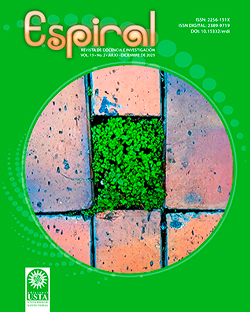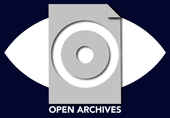Culture and the media - impact on oral expression. Walter Ong's Perspective
DOI:
https://doi.org/10.15332/erdi.v13i2.3135Keywords:
Communication, Culture, Discourse, Strategy, ExpressionAbstract
This article presents how our research was aimed at analyzing the impact of Walter Ong’s theory on strengthening oral expression through culture and media at the Instituto Arquidiocesano San Francisco de Asís in Pamplona, Norte de Santander, Colombia. The framework of intelligibility was Ong’s theory, using a qualitative approach and the Action Research method. Information was collected through various tools such as an entry test, interview, field diary, and exit test. After conducting the interviews, teachers identified several barriers to the development of students’ oral expression, including a lack of strategies, inhibition, and stage fright. During the implementation of the pedagogical strategy, deficiencies in the learning process were observed, allowing for gradual corrections; this was reflected in the results, showing a gap compared to the entry test results.
Downloads
References
Acevedo Amorocho, A. (2015). ¿Qué es una prueba de entrada?. Recuperado el 8 de Octubre de 2022. Prezi. https://prezi.com/qbb-n6zblfwo/que-es-una-prueba-de-entrada/
Cabrera Méndez, M. L. (2011). Diversidad en el aula. Innovación y experiencias educativas, (41). https://archivos.csif.es/archivos/andalucia/ensenanza/revistas/csicsif/revista/pdf/Numero_41/Lucia_Cabrera_1.pdf
Cobos Pérez, N. A. (2020). La argumentación oral para el desarrollo del pensamiento crítico en el aula [Tesis, Maestría en Educación]. Universidad Autónoma de Bucaramanga. http://hdl.handle.net/20.500.12749/12096
Corona Lisboa, J. L. (2018). Investigación cualitativa: fundamentos epistemológicos, teóricos y metodológicos. Vivat Academia, (144), 69-76. https://doi.org/10.15178/va.2018.144.69-76
Díaz-Bravo, L., Torruco-García, U., Martínez-Hernández, M. y Varela- Ruiz, M. (2013). La entrevista, recurso flexible y dinamico. Investigación en Educación Médica, 2(7), 162-167. https://doi.org/10.1016/S2007-5057(13)72706-6
Elliot, J. (2005). El cambio educativo desde la investigación-acción (4ª ed.). Ediciones Morata. https://estrategiasinnovadorasdeaprendizaje.com/wp-content/uploads/2023/11/3i_LIBRO_El-Cambio-Educativo-Desde-La-IA_Elliot.pdf
Escoffier, N., Sellaro, N. y Trillo, P. (2008). Informantes clave: la utilidad de la técnica para los estudios migratorios. I Encuentro Latinoamericano de Metodología de las Ciencias Sociales (ELMECS). Universidad Nacional de La Plata, La Plata, Argentina. https://www.memoria.fahce.unlp.edu.ar/trab_eventos/ev.9491/ev.9491.pdf
López Fernández, R., Avello Martínez, R., Palmero Urquiza, D. E., Sánchez Gálvez, S. y Quintana Álvarez, M. (2019). Validación de instrumentos como garantía de la credibilidad en las investigaciones cientificas. Revista Cubana de Medicina Militar, 48(2 (Sup)) 441-450. https://revmedmilitar.sld.cu/index.php/mil/article/view/390/331
Martínez Celis, J. H. (2019). Estrategias psicológicas para enfrentar la glosofobia y fortalecer la habilidad oratoria [Trabajo de grado, Psicología]. Universidad de Pamplona. http://repositoriodspace.unipamplona.edu.co/jspui/handle/20.500.12744/3599
Martínez Rodríguez, L. A. (2007). La observación y el diario de campo en la definición de un tema de investigación. Perfiles Libertadores, 4(80), 73-80. https://www.academia.edu/34873298
Ong, W. J. (2006). Oralidad y escritura: tecnologías de la palabra. Fondo de Cultura Económica. https://antroporecursos.files.wordpress.com/2009/03/ong-w-j-1982-oralidad-y-escritura.pdf
Rodríguez Gómez, G., Gil Flores, J. y García Jiménez, E. (1996). Metodología de la investigación cualitativa. Ediciones Aljibe.
Vásquez Rodríguez, F. (2011). La didáctica de la oralidad: experiencia, conocimiento y creatividad. Enunciación, 16(1), 151-160. https://doi.org/10.14483/22486798.3595
Downloads
Published
Versions
- 2025-01-27 (2)
- 2023-12-01 (1)
How to Cite
Issue
Section
License
Copyright (c) 2023 Espiral, Revista de Docencia e Investigación

This work is licensed under a Creative Commons Attribution-NonCommercial-NoDerivatives 4.0 International License.
Publishing and copyright
The authors of the articles accepted to be published, transfer proprietary rights to Espiral, Journal of Teaching and Research for the partial reproduction of the published work in electronic media (websites, indexes, directories), as long as their purposes are academic but not commercial.








